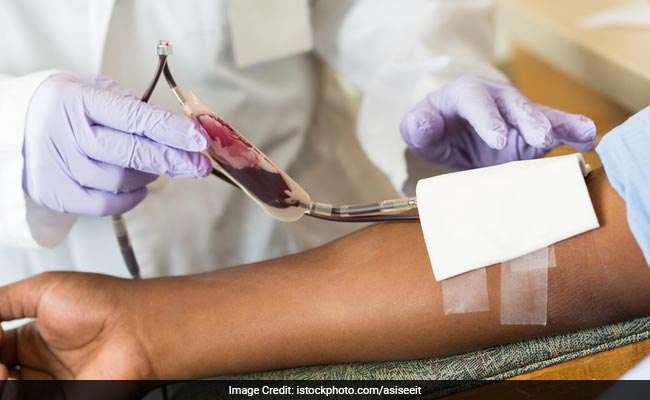World Blood Donor Day: This day is celebrated to encourage voluntary and unpaid donors to continue donating blood in order to maintain adequate supply of blood at the national level.

World blood donor day 2018: Blood donation is extremely important in a country like India
HIGHLIGHTS
- World blood donor day is observed every year on June 14
- Having enough supply of blood is important for the health system
- Any healthy adult of 18 years of age can donate blood
World Blood Donor Day 2018 is observed on June 14. The day is meant to raise awareness about the importance of blood donation on the health system. The idea is to encourage more and more people to donate blood along with voluntary and unpaid donors to continue donating blood in order to maintain adequate supply of blood at the national level. Voluntary and non-remunerated blood donors from low-risk populations are considered to be the safest blood donors. The World Health Organization (WHO) aims at making all countries efficient enough to obtain all blood supplies through voluntary and unpaid donors. This aim is in accordance with the World Health Assembly resolution 28.72, which was adopted in 1975. The WHO collaborates with International Federation of Red Cross and Red Crescent Societies (IFRC), the International Federation of Blood Donor Organizations (FIODS) and the International Society of Blood Transfusion (ISBT) to sponsor World Blood Donor Day. The primary aim of the event is to promote voluntary and unpaid donors, along with celebrating unpaid voluntary donors who donate blood regularly.

World blood donor day is observed on the 14th of June
Also read: 5 Things Your Blood Type Says About Your Health
Benefits of blood donation
Dr Satya Prakash Yadav says that blood donation is extremely important, especially in a country like India. He says, "India is a huge country with a lot of patients. There are a lot of patients suffering from health conditions like thalassemia major - a condition which requires lifelong blood transfusions. In our country, about 10,000 children are born with thalassemia every year. There are lakhs of thalassemia major patients. The condition is specifically common in North India. For health conditions like these, regular supply of blood through blood donations is very important," he says.
He goes on to add that people who have thalassemia major cannot be a donor. Moreover, everyone in the family of thalassemia patients is constantly donating. They eventually run out of blood supply since thalassemia major patients need blood supply every month. "Also, patients who undergo surgeries lose a lot of blood during the surgery. Trauma patients, cancer patients who undergo chemotherapy, too need blood supplies blood donors," says Dr Satya.
Also read: Hemoglobin: 7 Things You Can Do To Increase Your Blood Count
All these reasons make blood donation a very important aspect of health system in India. However, there are certain misconceptions about donating blood in India. Myths such as donating blood makes you weak, reduce your immunity and make you fall sick etc., have resulted in high demand and less supply of blood donors in India.
"More and more people should be motivated to donate so that more number of people can get a chance to live a healthy and better quality of life," he adds.

Blood donation can give others a chance at a healthy life
Photo Credit: iStock
Who all can donate blood?
Anyone who is an adult, that is, more than 18 years of age and is healthy, is capable of donating blood. A healthy person up to the age of 65-70 years can also donate blood. "The blood bank will check if your weight is fine according to your height, and will also check for any underlying health conditions such as high blood pressure, diabetes, HIV or any other major chronic diseases or viral infections. Also, to donate blood, you should not have low hemoglobin," he specifies.
Also read: Debunked: Myths About Blood Donation
This World Blood Donor Day, let's take a step ahead and donate blood, for the well-being of one and all!
(Dr. Satya Prakash Yadav is Director, Department of Haemotology and Medical oncology, Medanta)
Disclaimer: This content including advice provides generic information only. It is in no way a substitute for qualified medical opinion. Always consult a specialist or your own doctor for more information. NDTV does not claim responsibility for this information.
DoctorNDTV is the one stop site for all your health needs providing the most credible health information, health news and tips with expert advice on healthy living, diet plans, informative videos etc. You can get the most relevant and accurate info you need about health problems like diabetes, cancer, pregnancy, HIV and AIDS, weight loss and many other lifestyle diseases. We have a panel of over 350 experts who help us develop content by giving their valuable inputs and bringing to us the latest in the world of healthcare.














